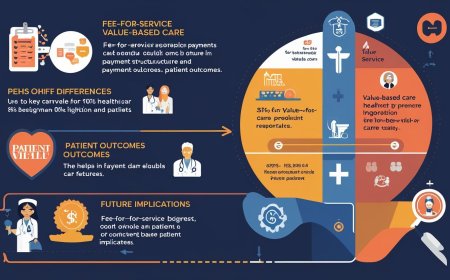Security Risks Without Incident Response Services
Operating without incident response (IR) services exposes an organization to significant security, operational, and financial risks.

Operating without incident response (IR) services exposes an organization to significant security, operational, and financial risks. Without a formalized and proactive IR capability, security incidents are more likely to go undetected, uncontained, and unresolvedpotentially resulting in severe damage.
Key Security Risks Without Incident Response Services
1. Delayed Detection of Threats
-
Threats may persist undetected for weeks or months.
-
Attackers can move laterally, escalate privileges, and exfiltrate data.
-
Average dwell time for advanced threats can exceed 200+ days without IR.
Risk: Loss of visibility ? Late detection ? Larger breach impact
2. Inadequate Containment and Recovery
-
Without clear response protocols, containment efforts may be slow or ineffective.
-
Systems remain compromised longer, increasing damage.
-
Improper eradication may lead to re-infection or persistent backdoors.
Risk: Threats continue spreading ? Business disruption
3. Higher Financial and Reputational Damage
-
Cost of a breach is significantly higher without a rapid response plan.
-
Includes legal fees, recovery costs, regulatory fines, and lost revenue.
-
Damage to brand reputation and customer trust can be long-lasting.
Risk: Financial losses + Long-term reputational harm
4. Regulatory Non-Compliance
-
Many industries require documented incident response processes (e.g., GDPR, HIPAA, PCI-DSS, NIST 800-61).
-
Failure to respond to breaches appropriately may lead to non-compliance penalties.
Risk: Legal consequences + Compliance violations
5. Lack of Forensic Evidence
-
Without incident response, organizations often lack:
-
Detailed logs
-
Timeline of events
-
Root cause analysis
-
-
This hampers investigations, attribution, and post-incident learning.
Risk: No ability to prove what happened or prevent recurrence
6. Increased Impact of Insider Threats
-
Malicious insiders or negligent users may not be detected.
-
Lack of response workflows means even obvious abuse can go unchecked.
Risk: Internal risks ignored ? Potential sabotage or data leaks
7. Inefficient Use of Security Tools
-
Even with SIEMs, firewalls, or EDR, lack of IR capabilities means:
-
Alerts go uninvestigated
-
No structured remediation
-
No learning loop
-
Risk: Tools generate noise with no action or value
Why Every Organization Needs Incident Response
-
Reduce breach impact and duration
-
Enable fast, structured containment
-
Meet legal and compliance obligations
-
Improve security posture over time
-
Protect brand and stakeholder trust
Real-World Consequences
| Organization | Without IR | Outcome |
|---|---|---|
| SMB (Healthcare) | No IR plan or team | Ransomware encrypted patient data; took weeks to recover |
| Government agency | Missed early detection | Nation-state actor remained undetected for 8 months |
| Financial firm | No forensic readiness | Couldnt determine if customer data was stolen; faced fines |
Key Benefits of Incident Response Services
Incident response servicesoffer a range of benefits that enable organizations to effectively respond to and recover from security incidents. These services help minimize the impact of incidents, ensure rapid response and recovery, preserve evidence, strengthen cybersecurity defenses, and maintain compliance with relevant regulations. By leveraging the expertise of incident response service providers, businesses can better protect their assets, reputation, and overall resilience in the face of cyber threats. Keep reading to learn more about these benefits.
1. Rapid Detection and Response
Incident response services enable businesses to quickly identify and respond to security incidents. By employing advanced threat intelligence tools and continuous monitoring, these services can detect suspicious activities and potential breaches in real time. Swift response helps minimize downtime, preventing further compromise and reducing the overall impact on the organization.
2. Effective Incident Response Handling
Not merely reactive, incident response services start before an attack to provide a structured and organized approach to handling security incidents. They help organizations establish incident response plans, define roles and responsibilities, and create a clear chain of communication. Incident response teams are trained to execute these plans efficiently, ensuring a coordinated response that mitigates the incidents impact and prevents its escalation.
3. Minimized Downtime and Losses
A major benefit of incident response services is the ability to minimize downtime and financial losses associated with a security incident. By quickly containing and remediating the incident, these services help organizations restore services and resume normal operations promptly. This reduces the impact on productivity, revenue generation, and customer trust, ultimately mitigating potential financial losses.
4. Preservation of Evidence
Incident response services play a crucial role in preserving evidence related to security incidents. This evidence is vital for forensic investigations, legal proceedings, and regulatory compliance. By following industry best practices and maintaining a chain of custody, incident response teams ensure that digital evidence is properly collected, preserved, and documented, increasing the chances of identifying the culprits and preventing future incidents.
5. Enhanced Cybersecurity Posture
Incident response services contribute to an organizations overallcybersecurity posture. By identifying vulnerabilities and weaknesses during incident response activities, these services provide valuable insights for strengthening security controls and implementing preventative measures. Lessons learned from the incident response can be used to enhance security strategies, patch vulnerabilities, and improve overall resilience against future threats.
6. Regulatory Compliance
Many industries are subject to strict regulatory requirements concerning incident response and data breaches. Incident response services help organizations comply with these regulations by providing a systematic and documented approach to incident handling. By partnering with a reputable incident response service provider, businesses can ensure that their incident response practices align with regulatory standards, avoiding penalties and reputational damage.
7. Cyberinsurance
The availability and affordability of cyberinsurance is increasingly tied to an organizations cybersecurity posture and maturity. Many insurers require an incident response plan, and often an incident response retainer to guarantee fast delivery of expert incident response capabilities. The quality and experience of incident response vendors is heavily reflected in cyberinsurance availability and the rates charged.
Outsource Your Incident Response Services
It is important to carefully select a reputable and trustworthy incident response service provider like NetWitness Professional Services that aligns with your organizations needs and values. Conduct thorough research to make an informed decision.
1. 24/7 Availability
Security incidents can occur at any time, and having a dedicated outsourcedincident responseteam ensures round-the-clock availability. This means you have immediate support and quick response times, even during off-hours, weekends, and holidays. It helps ensure that incidents are promptly addressed and mitigated, reducing potential damage and minimizing downtime.
2. Scalability and Flexibility
Outsourcingincident response servicesallows you to scale your response capabilities based on your needs. As your organization grows or faces an increase in security incidents, you can easily expand the resources and expertise provided by the service provider. Outsourcing also offers flexibility in terms of contract duration and services required, allowing you to align the engagement with your specific needs and budget.
3. Focus on Core Competencies
By outsourcing incident response, your internal teams can focus on their core competencies and strategic initiatives rather than being consumed by day-to-day incident response activities. This allows your organization to allocate resources effectively and concentrate on business growth, innovation, and other critical areas while leaving incident response to the experts.
NetWitness Incident Response Services
By choosing NetWitness forincident response services, you will access a team of experienced professionals who specialize in incident response. These experts possess in-depth knowledge, skills, and experience in handling a wide range of security incidents. We stay up to date with the latest threats and best practices, which will provide your company with a higher level of expertise than relying solely on internal resources.
At NetWitness, we offer four different response retainers. Each retainer is dependent on your needs as a business. You can chooseBronze,Silver,Gold, orPlatinum, with Platinum being the full package of incident response services.
Take control of your organizations cybersecurity with professional incident response services. Dont wait for a security incident to happen be prepared. Safeguard your data, minimize damage, and restore services quickly. Partner with a trusted incident response service provider such as NetWitness to ensure cybersecurity in your environment. Take the proactive steps to protect your organization from potential security threats and ensure a swift and effective response to all kinds of security threats.Contact NetWitnessforincident response servicetoday to get started.






















































